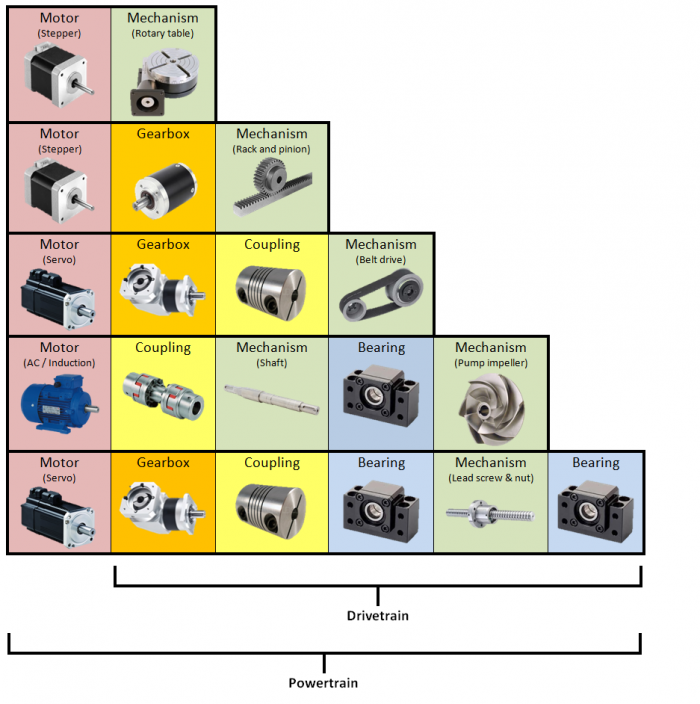Guide to machine design
This guide explains how to design a machine. It includes the following:
• Basic definitions • What standard components are included in machines (Machine elements) • How to select the right components for machines
Basic definitions
Device
A device uses power as an Input to perform work as an Output.
This includes smartphones or laptops, machines such as cars or robots, and appliances such as electric water boilers, etc.
Machine
A machine is a type of device that converts power into work in the form of motion. The term encompasses the entire physical system such as sensors, circuit boards, human interfaces, covers, etc.
This includes tractors, conveyor belts, 3D printers, MRI scanners, etc.
Powertrain
If you exclude the surrounding components of the machine and only focus on the chain of components that converts power into motion, the part of the machine that you are left with is called a powertrain.
In this ”chain” making up the powertrain, the first component (typically a motor) is connected to a power source (such as a wall socket) and the last component performs the intended motion as an Output.
Drivetrain
If you exclude the first component of a powertrain (such as a motor or engine) what you have left is called a Drivetrain.
Drive mechanism
The drive mechanism is the last part of the powertrain or drivetrain and the part of the machine that performs the output motion.
